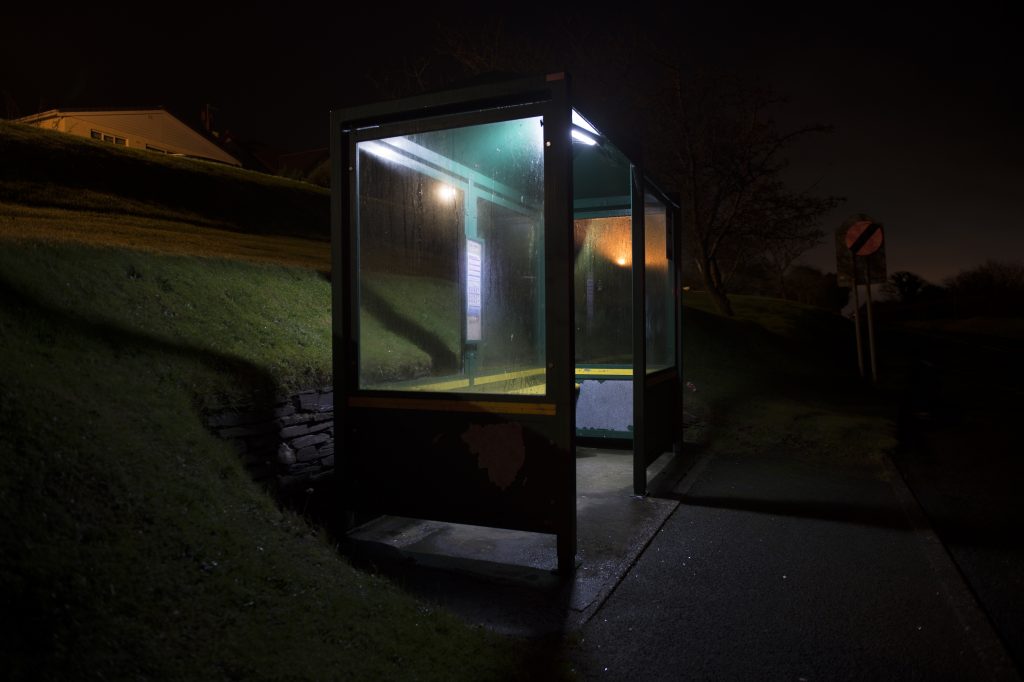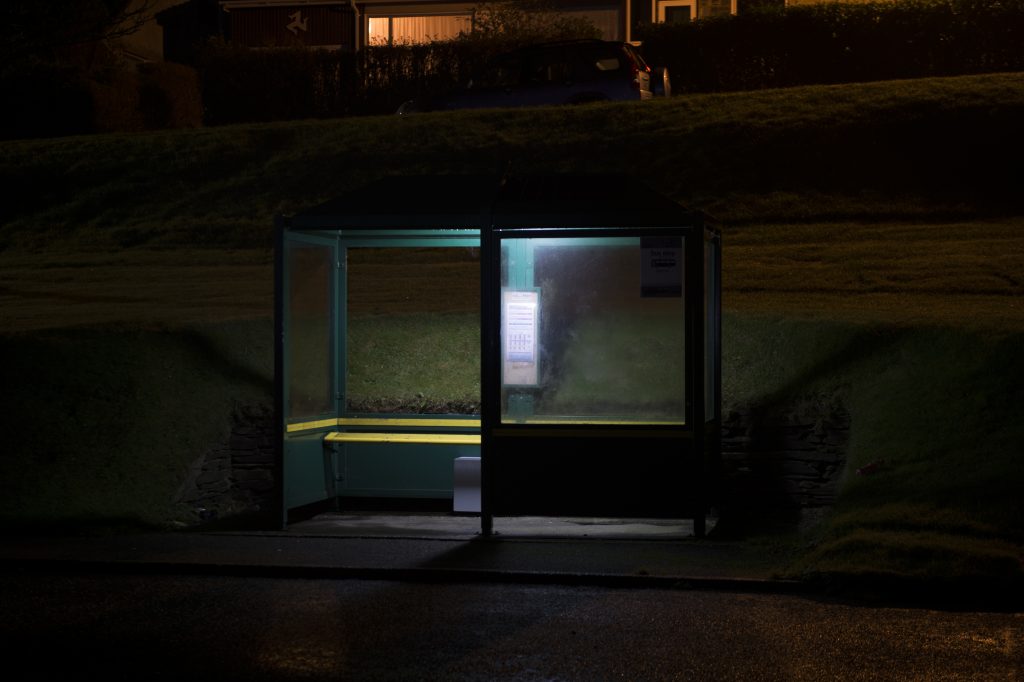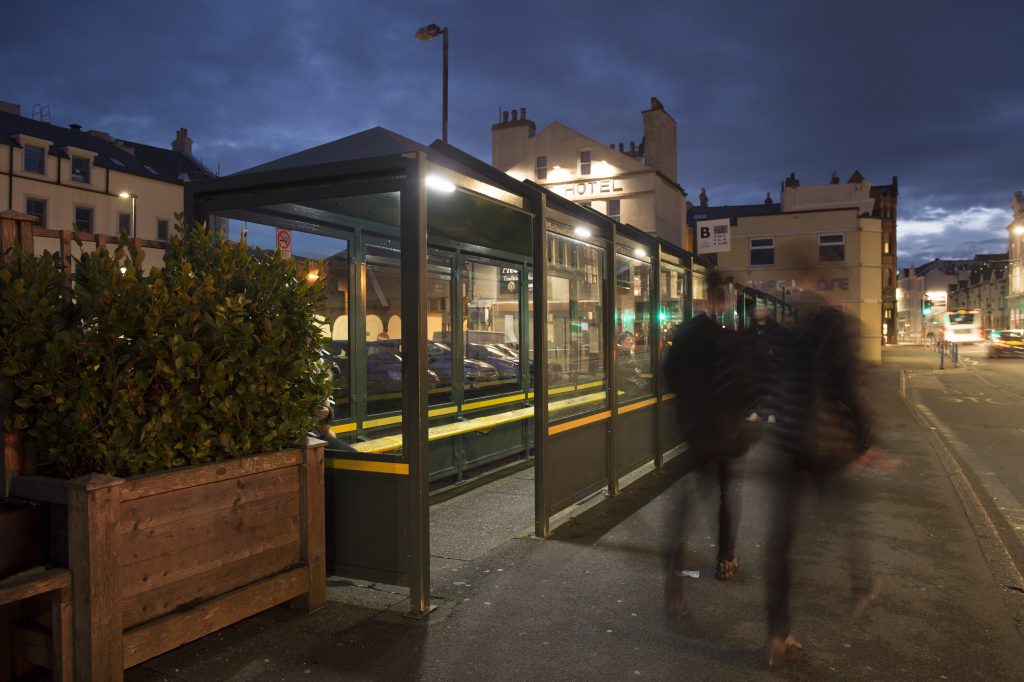Reporter: Stuart Littleford
15 bus stops along the main service route from Douglas to Ramsey have been fitted with Zeta Specialist Lighting’s Solar Shelter Lighting Kit. The rollout is part of a three-year plan that will see a total of 50 bus stops across the island benefiting from solar-powered illumination, an initiative designed to enhance passenger comfort and safety.
With a low population density and few built-up areas, the Isle of Man has very low levels of light pollution. This island is a centre for star gazing and has the largest concentration of Dark Skies sites in the British Isles. Some areas don’t have street lighting and in many locations where bus stops are sited, there is no mains connection, all of which pointed to a non-light polluting solar-powered system as the best solution.
Enhance passenger comfort and safety
The Department of Infrastructure’s public transport division was looking for a solution to provide illumination to enhance passenger comfort and safety, and as bus stops across the island are response stops, they also wanted to minimise the risk that bus drivers would miss waiting passengers in an unlit shelter during the hours of darkness.
Phase one was for 15 bus stops along the main service route from Douglas to Ramsey, phase two will see the rollout along the high commuter Douglas to Castletown route, and the final phase will see shelters from Peel to Ramsey, being fitted with Zeta’s solar solution.
Zeta’s Solar Shelter Lighting Kits had been fitted on shelters in the bus station in Douglas two years previously and had proven to be an effective, maintenance free solution, which made the decision to utilise the same system across the island an easy one.
This bespoke solar-powered lighting solution for bus shelters features specially manufactured, vandal resistant, solar panels which are attached to the roof of the shelter to harness the sun’s energy throughout the day. The solar energy charges the in-built long-life maintenance free batteries and powers the high luminance Zeta LEDs to illuminate the shelter from dusk till dawn. To ensure reliable, year-round performance, Zeta’s innovative and unique Energy Management System (EMS) optimises the energy collection; maximising power to the batteries during the day, and regulating the amount of power consumed by the LEDs at night.
The 15 shelters have been programmed to turn on/off according to operational timings, however for the next phases, the Solar Shelter Lighting Kits will include Passive Infra-Red technology (PIR) sensors. The shelters will maintain a constant low level of illumination until a passenger enters and activates the sensor, the light levels will gently increase and remain fully activated until the passenger leaves the immediate area.
This cost-effective and ultra-reliable solar-powered system was quick and easy to install, providing the ability to illuminate shelters in largely remote areas where mains electricity was not available and where laying cabling was cost and time prohibitive.
Safer environment
Creating a safer environment was a high priority, passenger safety and comfort has been enhanced now the shelters are illuminated, and disabled access improved as kerbs etc. are visible at night. In addition, drivers can clearly identify which stops have waiting passengers, removing the risk of driving by without picking them up.
Other benefits include the fact that ongoing running costs are zero, the solution is maintenance free and there are no additional energy bills to pay. Plus, the overall environmental impact of a solar-powered system is much lower than one which utilises electricity.
Commenting on Zeta’s solar-powered solution, Ian Bates, Head of Operations, Public Transport Division, Department of Infrastructure, Isle of Man said: “We are delighted with Zeta’s easy to install, maintenance free solution. We are working closely with the island’s parish councils getting them involved in initiatives to safely illuminate their areas and look forward to the wider roll out of this solar-powered system across the island.”









Recent Comments